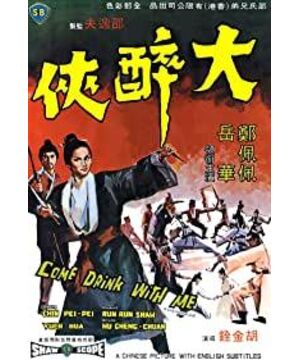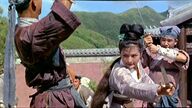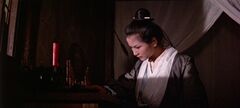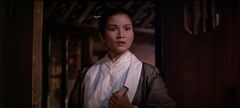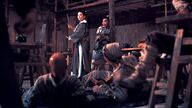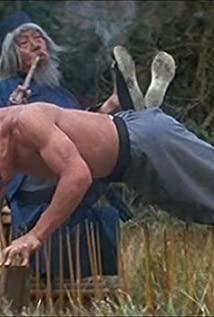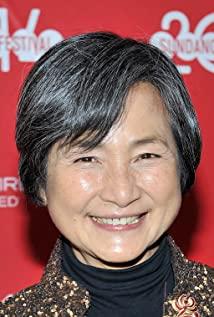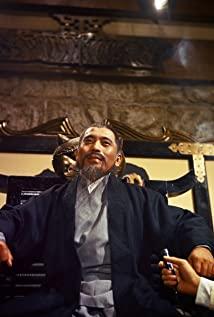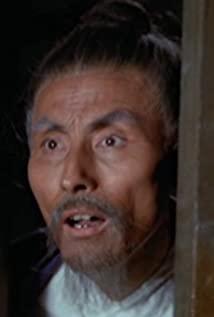The "Drunken Man", which is known as the beginning of a new martial arts film, is more active than the previous "old" fight, the action is quicker, and it is no longer slow and false. This film also has Hu Jinquan's distinctive characteristics. Take Duan Inn Chase, which is my favorite, as an example. When Jin Yanzi found that the two swords were missing, the music started, and when he saw the drunk man sitting downstairs, the music stopped. He jumped downstairs without replying, gave a close-up of the dragonfly water and somersaults and somersaults from his back. When he got to the front, the camera cut to the drunk man flying upstairs. Jin Yanzi threw the dart, the camera cut directly to the dart inserted into the door, and then the drunk man opened the door and mocked (this part reminds me of Zhou Xingchi's unlocking and saving Lin Zicong in "Kung Fu"). Jin Yanzi jumped upstairs, looking for the drunk man, and started before seeing the music of the drunk man. A drunk man who moved his mirror to the roof outside the window, the music completely remembered. Jin Yanzi jumped up and cut directly to the drunk man who got up and ran. Jin Yanzi reached out and grabbed it. Then it was chasing on the eaves (the part of Ang Lee's "Crouching Tiger, Hidden Dragon" is also very exciting)... It can be seen that the cooperation between the sound and the picture of Peking Opera, the editing between the shots, the temperament of the actors, these all show that Hu Jinquan is a great A martial arts director who pays attention to artistic conception. Jia Zhangke has said that he likes the aesthetics in Hu Jinquan's martial arts movies.
"One-Armed Swordsman" is the first movie in Hong Kong to exceed one million, which changed the situation of the film industry, and it is also the famous work of Zhang Che and Wang Yu. Zhang Che's style is also evident. The use of instant pulls and slow motion, powerful and explosive music, naked muscles, fighting between hard bridges and hard horses, display of weapons, bright red Shenma sauce tomato juice and all kinds of "waiter" screams. The trick... Tsui Hark commented that Zhang Che is a humanistic director, and Quentin also said that he likes his films very much.
Both films have supporting roles Gu Feng, boss Yang Zhiqing (I don't know if it's a Mandarin dubbing problem, but I always feel that his character is in play), and it seems that I also saw Pan Yingzi who flashed by in the former. Zheng Peipei was very beautiful when he was young, and the martial arts films have extraordinary temperament. Whether in Hu Jinquan's films, or in Xu Zenghong's and Zhang Che's films, they are as bright as fireflies at night, so dazzling?
Obviously, the two films are not the highest level of their respective works. Hu Jinquan filmed "Dragon Inn", the beautiful "Empty Mountain and Spiritual Rain", and the "Chivalrous Girl" which won the international award. Zhang Che has the most styled "Vengeance", "Thorn Horse", which was remade by later generations, and "New One-Armed Swordsman". Both of them also contributed to the film. Hu Jinquan's aesthetics made future generations look up to and learn from it. The inn scene in "The Drunk Man" has also become a common scene in later martial arts film and television works. Zhang Che's films influenced his apprentice John Woo, and also made Wang Yu, Jiang Dawei, Di Long, Li Xiuxian and other disciples generation after generation.
Actually, I feel that "Drunken Man" should be called "Golden Swallow", and "Golden Swallow" should be called "Yinpeng"?
View more about Come Drink with Me reviews


